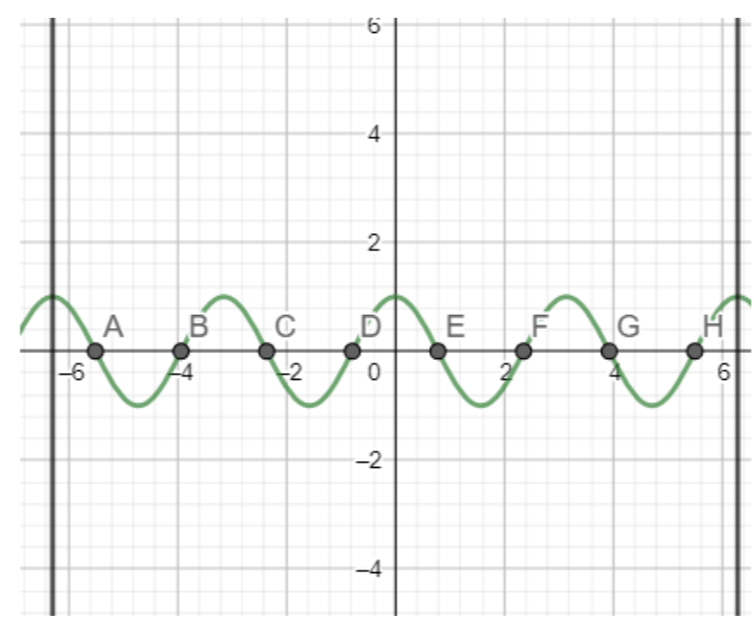Question
Question: Find the number of critical points of the function \(\dfrac{2}{3}\sqrt{{{x}^{3}}}-\dfrac{x}{2}+\int_...
Find the number of critical points of the function 32x3−2x+∫1x(21+2cos2t−t)dt in the interval [−2π,2π].
[a] 2
[b] 6
[c] 4
[d] 8
Solution
Use the fact that if f(x) is a differentiable function, then the critical points are the roots of the equation f′(x)=0. Use first fundamental theorem of calculus which states that A′(x)=dxd∫axf(t)dt=f(x) and hence prove that the critical roots are the roots of the equation cos2x=0. Use the fact that if cosx=cosy, then x=2nπ±y,n∈N. Hence find the critical roots in the interval [−2π,2π]
Complete step-by-step solution:
We have been given a function and let us take it as f(x)=32x3−2x+∫1x(21+21cos2t−t)dt
We know that if f(x) is a differentiable function, then the critical roots are given by the equation f′(x)=0.
Hence differentiating both sides, we have
f′(x)=32dxdx23−21dxdx+dxd(∫1x(21+2cos2t−t))
We know that A′(x)=dxd∫axf(t)dt=f(x)(This is the first fundamental theorem of calculus)
Hence, we have
f′(x)=32×23x−21+21+2cos2x−x=2cos2x
Hence the critical roots of f(x) are the roots of the equation 2cos2x=0
Multiplying both sides by 2, we get
cos2x=0
We know that cos2π=0
Hence, we have
cos2x=cos2π
We know that cosx=cosy⇒x=2nπ±y,n∈N
Hence, we have
2x=2nπ±2π,n∈N
Dividing both sides by 2, we get
x=nπ±4π,n∈N
Put n=0,1,2,−1,−2, we get
x=±4π,±43π,±45π,±47π
Hence the number of critical points in the interval [−2π,2π] is 8
Hence option [d] is correct.
Note: [1] Note that we can directly find the number of solutions of the equation cos2x=0 in the interval [−2π,2π] using graph paper.
We draw the graph of cos2x as follows

As is evident from the graph that there are 8 solutions in the interval [−2π,2π]
Hence option [d] is correct.
